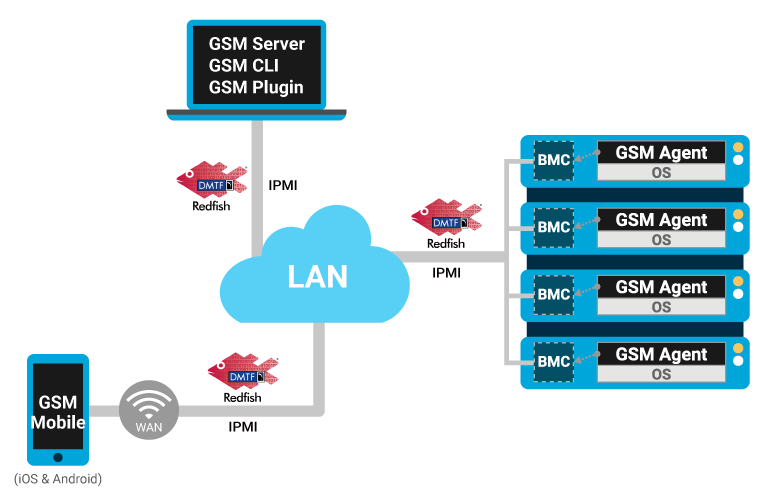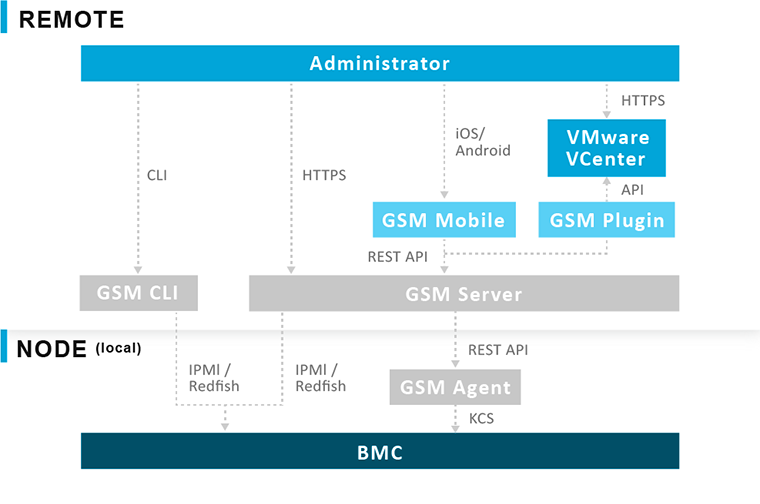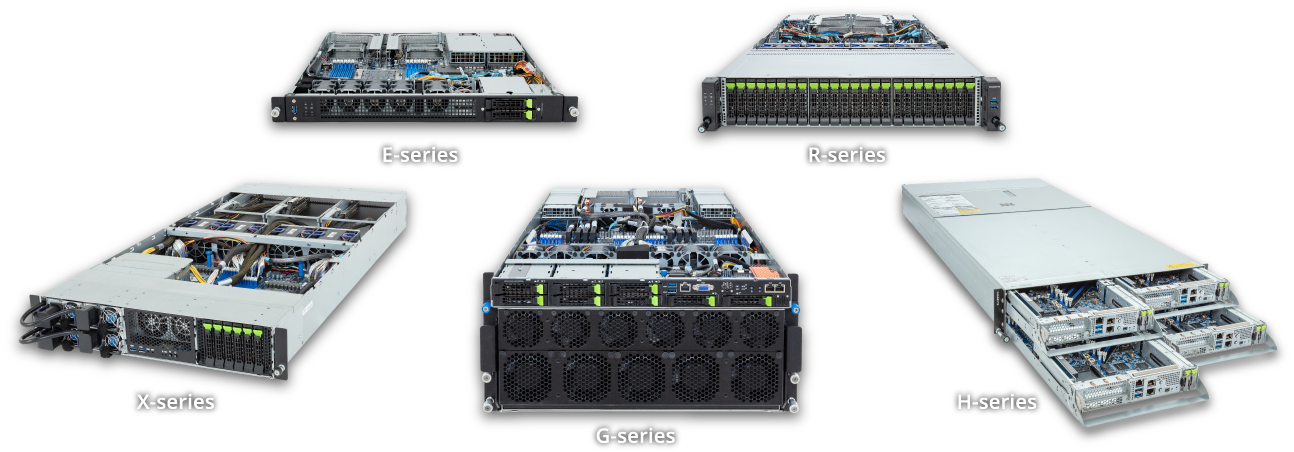New AMD EPYC™ Family of Processors - Same Great SP5 Platform
The SP5 socket has reached its pinnacle form with 5th Generation AMD EPYC™ processors. The same successful platform that was shared by AMD EPYC™ 9004 & 8004 series processors is now the same one for AMD EPYC™ 9005 series processors. With up to 192 cores, increased frequencies and cache, this top tier performance platform targets general purpose, cloud native, and technical computing. Building on the advantages of the EPYC™ 9004 series, the new EPYC™ 9005 series adopts the 3nm process with AMD “Zen5” and “Zen5c” core architecture, excelling in both energy efficiency and cost optimization. GIGABYTE has already prepared for this new processor with new servers and updates to existing products for 4th Gen AMD EPYC™ processors.
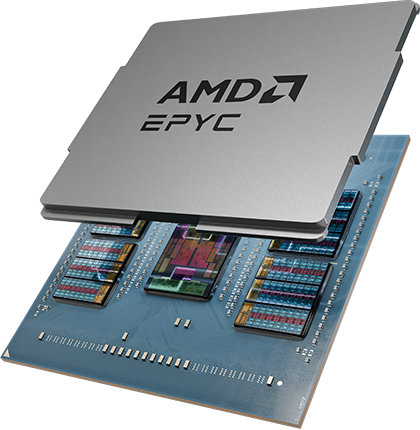
5th Generation AMD EPYC™ Processors for SP5 Socket
3nmarchitecture
Increased transistor density alongside a reduction in power consumption
Up to 192CPU cores
Dedicated “Zen 5” & “Zen 5c” cores increase compute density
Up to 512MBL3 cache
An L3 cache increase helps to reduce latency in data-intensive operations
12channels
Memory capacity up to 9TB in a 2 DIMM per channel configuration
Up to 160PCIe lanes
Dual socket configuration adds a significant amount of I/O connectivity
CXL 2.0support
Disaggregated compute architecture possible via Compute Express Link
- AMD EPYC™ 9005 Series processors require OEM enablement and a BIOS update from your server or motherboard manufacturer if used with a motherboard designed for the SP5 socketed AMD EPYC™ 9004 Series processors. Contact your system manufacturer prior to purchase to determine compatibility.
- CXL Type 1&2 devices and PCIe link encryption support dependent upon ecosystem readiness; type 2 PoC only.
Select GIGABYTE for the AMD EPYC™ 9005 Platform

High Performance
Servers and motherboards by GIGABYTE are tested to ensure peak performance for demanding workloads while supporting the latest GPU and CXL technology.

Compute Density
With 192 CPU cores per socket, GIGABYTE's 4-node servers support up to 1,536 CPU cores, allowing a far greater number of concurrent tasks to be done.

Fast & Stable Connectivity
Keeping pace with the challenges for next gen technology, well designed GIGABYTE boards provide users the signal integrity for fast PCIe 5.0 speeds.

Collaboration
AMD and GIGABYTE have maintained a healthy relationship that values shared knowledge and open communication in order to launch products in tandem.

Optimal Price
Our broad portfolio of products tailored to applications allow customers to only select server features they require while doing so at a lower TCO.
MZ33-AR1 Block Diagram
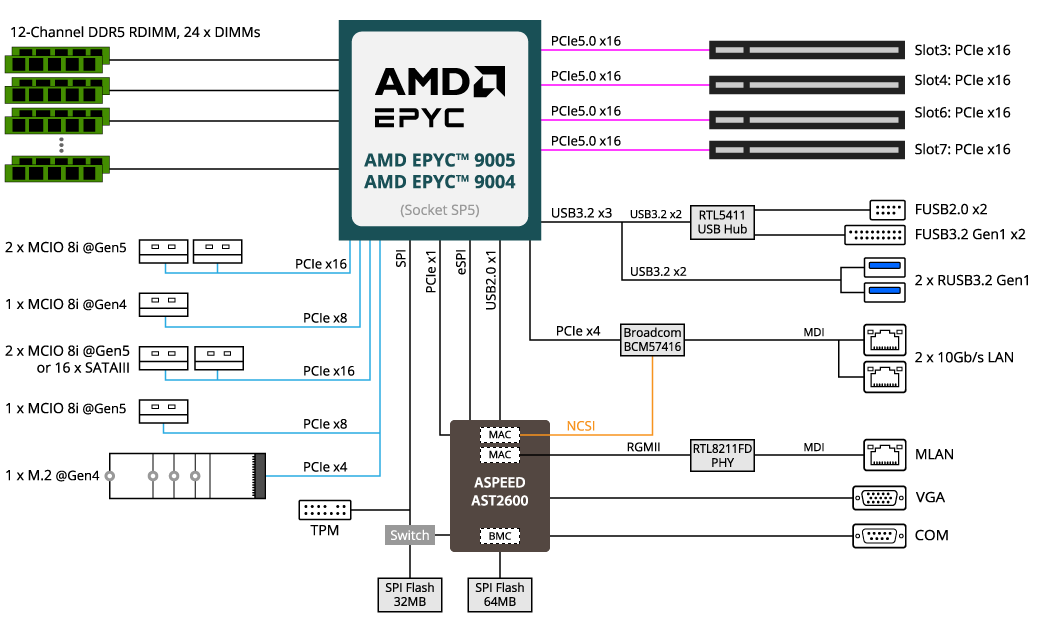
MZ33-AR1 Product Overview
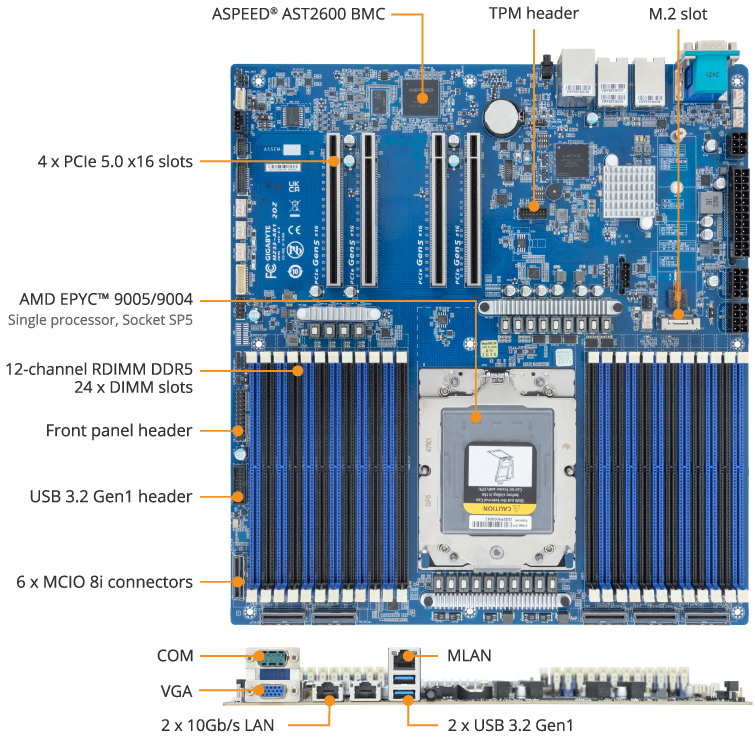
Hardware Security
Optional TPM 2.0 Module
For hardware-based authentication, the passwords, encryption keys, and digital certificates are stored in a TPM module to prevent unwanted users from gaining access to your data. GIGABYTE TPM modules come in either a Serial Peripheral Interface or Low Pin Count bus.
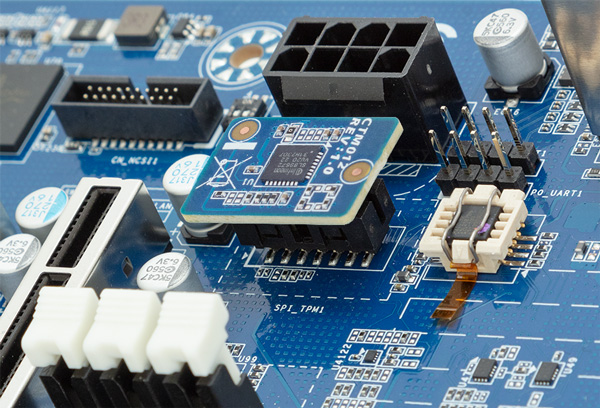
Value-added Management
GIGABYTE offers free-of-charge management applications via a specialized small processor built on the server.
GIGABYTE Management Console
For management and maintenance of a server or a small cluster, users can use the GIGABYTE Management Console, which is pre-installed on each server. Once the servers are running, IT staff can perform real-time health monitoring and management on each server through the browser-based graphical user interface. In addition, the GIGABYTE Management Console also provides:
- Support for standard IPMI specifications that allows users to integrate services into a single platform through an open interface
- Automatic event recording, which can record system behavior 30 seconds before an event occurs, making it easier to determine subsequent actions
- Integrate SAS/SATA/NVMe devices and RAID controller firmware into GIGABYTE Management Console to monitor and control Broadcom® MegaRAID adapters.
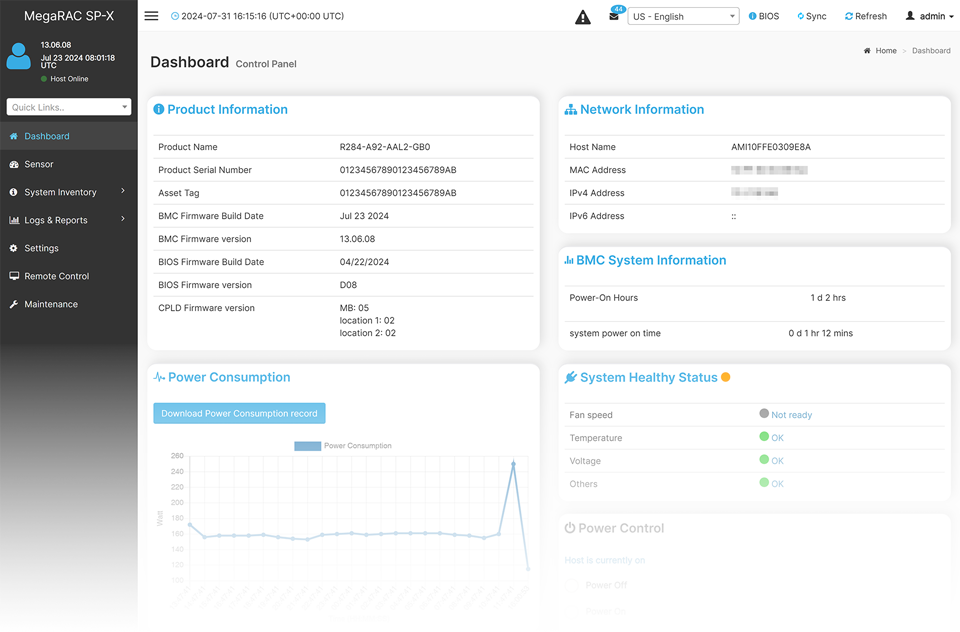
GIGABYTE Server Management (GSM)
GSM is a software suite that can manage clusters of servers simultaneously over the internet. GSM can be run on all GIGABYTE servers and has support for Windows and Linux. GSM can be downloaded from GIGABYTE website and complies with IPMI and Redfish standards. GSM includes a complete range of system management functions that includes the following utilities:
- GSM Server: A software program that provides real-time, remote control using a graphical user interface through an administrator’s computer or through a server in the cluster. The software allows ease of maintenance for large clusters of servers.
- GSM CLI: A command-line interface for monitoring and managing remotely.
- GSM Agent: A software program installed on each GIGABYTE server node that retrieves information from each system and devices through the OS, and this software integrates with GSM Server or GSM CLI.
- GSM Mobile: A mobile app for both Android and iOS that provides admins with real-time system information.
- GSM Plugin: An application program interface that allows users to use VMware vCenter for real-time monitoring and management of server clusters.
